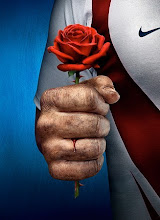Tab: n. an open order of items to be paid for in total later, such as drinks ordered from a bar.
Most people know the tab as an elusive beast, found most commonly in popular culture, or occasionally at a friend's birthday party (when the parents are feeling particularly generous). Tabs symbolise the wistful dreams of every student and other alcoholic in denial. The idea that beverages can be freely taken from the bar with no future financial or other consequences.
With this utopian ideal in mind, I opened a tab on Saturday night. Not once, but twice. It was glorious. At first.
Something about that first purchase, after exchanging a credit/debit card for a numbered piece of plastic, warms the soul. It's a feeling of freedom, that the night is limitless and that you are "the man". I am henceforth referring to this feeling as the "Tab complex".
Some downsides of the Tab complex include overconfidence, mild amnesia (particularly of any financial situations) and overwhelming generosity. As I returned to my table with the third round of shots, bought predominantly for people I didn't know or had only just met, the fact that within the short space of 30 minutes my tab had reached a healthy $120 was far from my mind. Money continued to be spent at this rate for some time. This possibly important piece of information was not discovered until the following morning, when I realised my bank balance was nonexistent.
The Tab complex is not all cons though. You are immediately welcome amongst all groups (probably due to the "good bloke" illusion) and, if you remain sober enough (which I was nowhere near) there is a chance to really make a connection with your new-found friends. There's also the bonus of being able to get absolutely sh*t-faced without ever having to hand over any real money - until it comes to the close of the night.
As a result of my experiences, I can set out some basic ground rules regarding the use of a tab, so that you avoid my unfortunate discovery the following morning:
Rule 1: Do NOT, under any circumstances, open a tab if you are already drunk.
Rule 1: Do NOT, under any circumstances, open a tab if you are already drunk.
Rule 2: Try and operate a tab with one designated friend in your group, so that they can police your spending when you do reach drunkenness.
Rule 3: Rounds of shots can seem like an excellent idea every time, but try and limit yourself. They are a very easy way to burn through money.
Rule 4: NEVER use a credit card. It's one thing to spend your money, it's entirely another to spend money that isn't.
Rule 5: If possible, give the bar staff a limit on how much can be spent on the tab. This is more to protect you from yourself.
These rules are by no means concrete, but if you stick to them, you will hopefully avoid the horror of realising you don't have enough money to get a cab home, let alone eat for the next week.
Yours in folly,
~Coops
